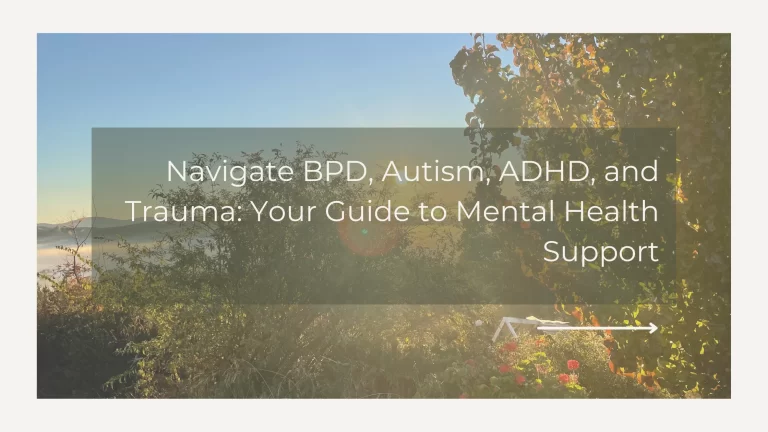What is trauma, and are my reactions normal?
Trauma profoundly affects individuals, whether from accidents, loss, or disasters, often prompting varied emotional, cognitive, physical, and behavioral responses. These reactions are natural and part of healing. Understanding them can reduce isolation and promote recovery. Professional help is crucial if symptoms persist or worsen. Support and resources are vital steps towards healing.
Trauma is a powerful and often overwhelming experience that can leave a lasting impact on anyone who endures it. Whether it’s the result of a car accident, the sudden loss of a loved one, or surviving a natural disaster, trauma can shake the very foundation of our lives.
Many people who’ve gone through traumatic events ask themselves the same question: “Are my reactions normal?” Understanding the common reactions to trauma can provide reassurance and clarity during such a confusing time. In this blog post, we’ll explore the typical emotional, cognitive, physical, and behavioural responses to trauma. Our goal is to help you recognise that these reactions are a natural part of the healing process and to offer guidance on when to seek additional support.
By shedding light on the diverse ways people respond to trauma, we hope to foster a sense of normalcy and validation. Remember, acknowledging your feelings and reactions is the first step towards healing and recovery.
What is Trauma?
Trauma refers to an emotional response to a distressing event or series of events that overwhelm an individual’s ability to cope. It can manifest in various forms, impacting not just the mind but the body and spirit as well. Trauma can stem from a wide range of experiences, including but not limited to:
- Physical trauma: Injuries from accidents, assaults, or medical emergencies.
- Emotional trauma: Experiencing intense fear, helplessness, or horror, often associated with abuse or neglect.
- Psychological trauma: Witnessing or being involved in events like natural disasters, violent incidents, or the sudden loss of a loved one.
These events can leave lasting scars, influencing how we think, feel, and interact with the world. Trauma is deeply personal and can affect anyone, regardless of age, background, or life experience. It’s important to recognise that trauma isn’t limited to these examples—any event that significantly disrupts your sense of safety or well-being can be traumatic.
Understanding what trauma is and how it manifests is the first step in acknowledging your experiences and beginning the healing process. For a more information about trauma, we invite you to view our other blog posts.
Common Reactions to Trauma
Experiencing trauma can lead to a wide range of reactions, which can vary significantly from person to person. It’s important to understand that these responses are normal and part of the body’s natural way of coping with overwhelming events. Here are some common reactions to trauma:
Emotional Reactions
- Anxiety: Feeling constantly on edge or worried, even when there’s no immediate danger.
- Depression: Experiencing persistent sadness, hopelessness, or a lack of interest in activities once enjoyed.
- Anger: Feeling irritable or having intense anger that seems out of proportion to the situation.
- Guilt or Shame: Blaming oneself for what happened or feeling embarrassed about one’s reactions.
Cognitive Reactions
- Confusion: Having difficulty making decisions or thinking clearly.
- Difficulty Concentrating: Struggling to focus on tasks or conversations.
- Intrusive Thoughts: Recurrent, unwanted thoughts or flashbacks of the traumatic event.
Physical Reactions
- Fatigue: Feeling constantly tired or drained, even with adequate sleep.
- Insomnia: Having trouble falling asleep, staying asleep, or experiencing restless sleep.
- Changes in Appetite: Eating significantly more or less than usual.
- Physical Pain or Tension: Experiencing headaches, stomachaches, or muscle tension without a clear medical cause.
Behavioural Reactions
- Withdrawal from Social Activities: Avoiding friends, family, or social events that were once enjoyable.
- Changes in Routine: Altering daily habits, such as sleeping or eating patterns, in response to the trauma.
- Risky Behaviours: Engaging in behaviours that are out of character, such as substance abuse or reckless actions.
These reactions can be immediate or delayed, short-term or long-term. It’s also common for people to experience a combination of these reactions at different times. Understanding that these responses are typical can help normalise your experience and reduce feelings of isolation.
If you find that these reactions are significantly impacting your daily life or if they persist for an extended period, it might be helpful to seek professional support. Remember, acknowledging your feelings and seeking help is a vital step towards healing.
Understanding Normal Reactions
After experiencing a traumatic event, it’s common to question whether your reactions are normal. The truth is, there is no “one size fits all” when it comes to responding to trauma. Reactions can vary widely based on numerous factors, and understanding this variability is crucial for self-compassion and recovery.
Normalisation
First and foremost, it’s essential to realise that your reactions are normal responses to abnormal events. Trauma disrupts our sense of safety and control, prompting a range of emotional, cognitive, physical, and behavioural responses. Feeling anxious, sad, angry, or confused doesn’t mean there’s something wrong with you—these are natural ways your body and mind are trying to process what happened.
Range of Reactions
Trauma reactions can differ greatly in terms of intensity and duration. Some people may experience immediate reactions, while others might not notice the impact until weeks, months, or even years later. Additionally, these responses can be temporary, lasting only a few days or weeks, or they might persist longer, depending on the nature of the trauma and individual circumstances.
Individual Differences
Several personal factors influence how someone reacts to trauma:
- Past Experiences: Previous exposure to trauma can affect how one responds to new traumatic events.
- Support Systems: Having a strong network of friends and family can provide crucial emotional support and help mitigate trauma reactions.
- Personality: Individual personality traits, such as resilience and coping style, play a role in how one handles trauma.
- Current Life Stressors: Other ongoing stressors, like work or family issues, can compound the effects of trauma.
Recognising these differences helps in understanding that there is no “right” or “wrong” way to react to trauma. Your reactions are shaped by your unique experiences and context.
Understanding that a wide range of responses is normal can provide relief and reduce the pressure to “get over it” quickly. It’s important to give yourself permission to feel whatever you’re feeling without judgement. Healing takes time, and your reactions are a part of that process. If you ever feel overwhelmed or uncertain about your reactions, consider reaching out to a mental health professional for guidance and support.
When to Seek Help
While many reactions to trauma are normal and part of the healing process, there are times when professional support is essential to navigate the path to recovery. Recognising when to seek help can make a significant difference in your mental health and overall well-being.
Signs of Needing Professional Support
- Persistent or Worsening Symptoms: If your emotional, cognitive, or physical symptoms persist for several weeks or months without improvement, or if they worsen over time, it may be time to seek help.
- Inability to Function in Daily Life: Difficulty performing daily tasks, maintaining relationships, or functioning at work or school can indicate that your trauma reactions are significantly impacting your life.
- Thoughts of Self-Harm or Harm to Others: Experiencing thoughts of self-harm, suicide, or harming others is a critical sign that you need immediate professional assistance.
- Substance Abuse: Turning to alcohol, drugs, or other substances to cope with trauma can lead to further complications and is a sign that professional help is needed.
Types of Professional Help
- Therapy: Various forms of therapy, such as cognitive-behavioural therapy (CBT), eye movement desensitisation and reprocessing (EMDR), and trauma-focused therapy, can help process and heal from trauma.
- Medication: In some cases, medication prescribed by a psychiatrist can help manage symptoms of anxiety, depression, or other trauma-related conditions.
- Support Groups: Joining a support group provides a safe space to share experiences and gain support from others who have gone through similar situations.
If you recognise any of these signs in yourself, it’s important to reach out for professional support. At Regenerative Psychology, we often help individuals navigate the complexities of trauma and guide them towards recovery. Our team of experienced psychologists is here to provide the compassionate care you need.
Taking the first step towards seeking help can be daunting, but it’s a crucial part of your healing journey. We invite you to book an appointment with one of our psychologists at Regenerative Psychology. Our professionals are dedicated to helping you understand and manage your reactions to trauma, providing tailored support to foster your resilience and well-being.
Remember, seeking help is a sign of strength and a positive step towards reclaiming your life. You don’t have to go through this alone—our team at Regenerative Psychology is here to support you every step of the way.
Experiencing trauma can be an incredibly challenging and isolating journey, but understanding that your reactions are normal is an essential step towards healing. By recognising the common emotional, cognitive, physical, and behavioural responses to trauma, you can begin to navigate your path to recovery with greater clarity and self-compassion.
Remember, it’s perfectly normal to have a wide range of reactions to traumatic events. Whether you’re dealing with anxiety, intrusive thoughts, physical pain, or changes in behaviour, these are all natural responses to extraordinary circumstances. However, if these reactions are overwhelming or persist for an extended period, seeking professional help is crucial.
At Regenerative Psychology, we are committed to providing the support and guidance you need during this difficult time. Our team of experienced psychologists is here to help you understand your reactions, develop effective coping strategies, and move forward in your healing journey.
What you can do:
- Reach Out: Share your experiences or tips in the comments below. Your story could be a source of support and inspiration for others.
- Learn More: Explore our blog for additional resources and information on trauma and recovery.
- Book an Appointment: If you’re struggling with your reactions to trauma, we invite you to book an appointment with one of our compassionate psychologists at Regenerative Psychology. Taking this step is a powerful move towards reclaiming your well-being and rebuilding your life.
You don’t have to face this journey alone. With the right support and resources, recovery is possible. Reach out today and take the first step towards healing.





